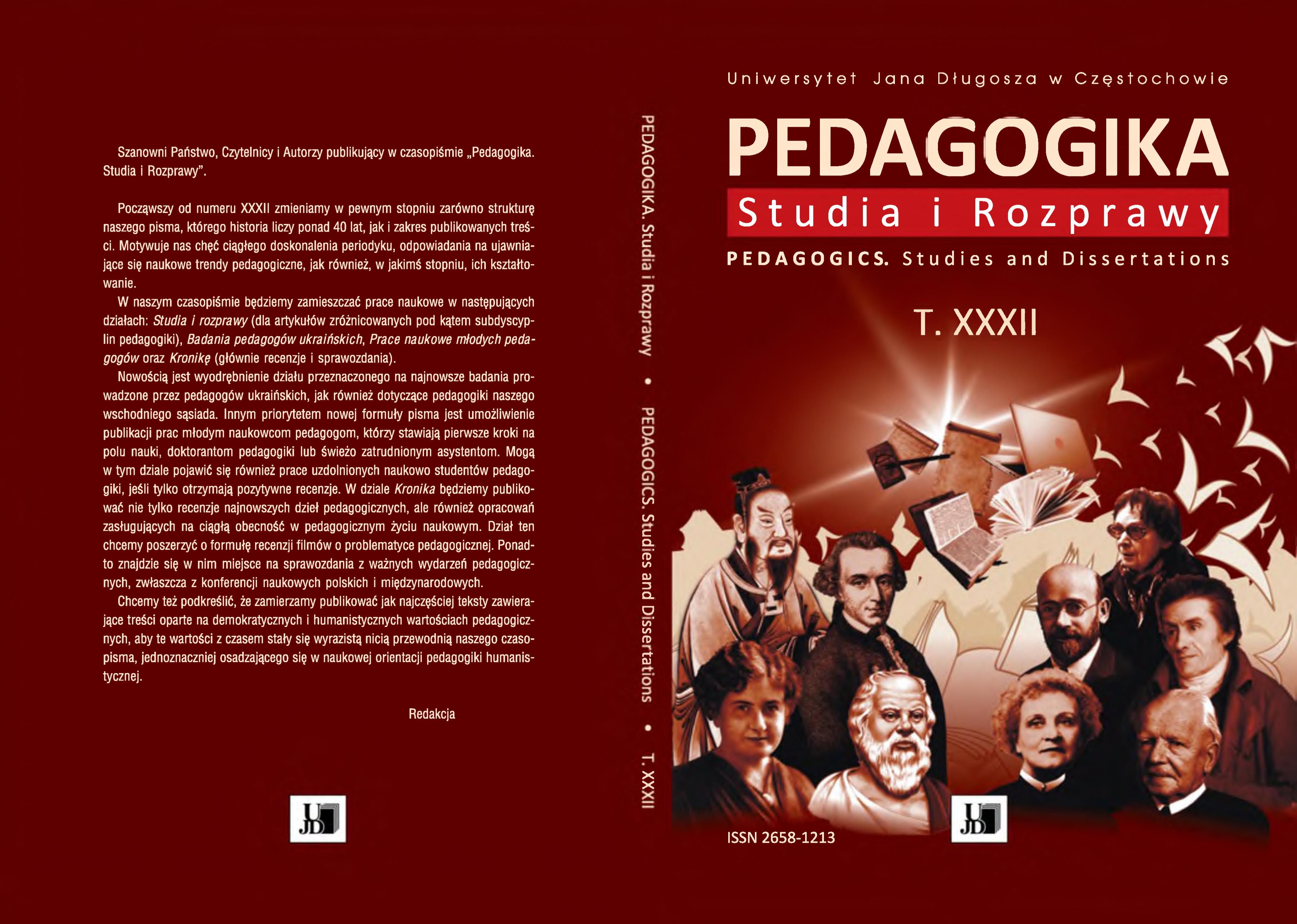The Development of Teachers’ Competencies Within Polish Pre-Service Teacher Education. The Analysis of the Legal Act From the Perspective of International Baccalaureate
DOI:
https://doi.org/10.16926/p.2023.32.01Keywords:
teachers’ competences, pre-service teacher education, international baccalaureateAbstract
The article presents the results of the analysis of the legal foundations of pre-service teacher
education in Poland. The inspiration for this study was our previous research on teachers imple-
menting international programmes in Poland. Our findings show that these teachers do not feel
prepared to work in international schools that require specific competences. Therefore, we de-
cided to analyse the main legal act regulating pre-service teacher education and to verify if and to
what extent the Polish legislator took into account competencies especially needed in interna-
tional schools. The results of our analysis show that the Polish law puts special emphasis on the
development of teachers’ cognitive competencies (teaching subject knowledge, teaching meth-
ods, goals of the Polish education system) and interpersonal competencies (communication, re-
flection on the professional practice). On the other hand, leadership competencies are less em-
phasised. It is also difficult to find competencies related to global awareness, understood as the
ability to understand the contemporary world, combined with the recognition of global and local. connections. Intrapersonal competencies were not considered at all. We do not treat this legal
status of the pre-service teacher education as a weakness, but rather as its specificity, resulting
from the fact that international schools constitute a small percentage of all schools in Poland.
Presenting here the polish example, we are curious how it is in other countries, and we are con-
vinced that further comparative research on pre-service teacher education in Europe will be in-
teresting and necessary for a better understanding of this process and its effects.
References
Bowen, G.A. (2009). Document analysis as a qualitative research method. Qualitative Research Journal, 9(2), 27–40.
Coffey, A. (2014). Analysing documents. SAGE Publications Ltd, https://doi.org/10.4135/9781446282243.
Corbin, J., & Strauss, A. (2008). Basics of qualitative research: Techniques and procedures for developing grounded theory (3rd ed.). Thousand Oaks, CA: Sage.
European Commission (2013). Supporting teacher competence development for better learning outcomes. Brussels: European Commission. https://eur-lex.europa.eu/LexUriServ/LexUriServ.do?uri=SWD:2012:0374:FIN:EN:PDF, access: 04.01.2023.
Leek, J. (2022) International Baccalaureate schools as islands of educational resistance. A case study of Poland. Globalisation, Societies and Education; https://doi.org/10.1080/14767724.2022.2089976.
Leek, J. (2020). From Educational Experiment to the National Programme. International Baccalaureate Programmes in Poland – Policy and Practice Perspectives. Compare: A Journal of Comparative and International Education, 475–491; https://doi.org/10.108/03057925.2020.1777842.
Regulation of the Minister of Science and Higher Education of July 25, 2019 regarding the standard of pre-service teacher education. Journal of Laws of 2019, item 1450, https://isap.sejm.gov.pl/isap.nsf/DocDetails.xsp?id=WDU20190001450, access: 03.01.2023.
Rojek, M., Leek, J., Kosiorek M., & Dobińska G. (2023). Mutual learning community. Teachers’ opinions about their learning possibilities in schools implementing international programmes. Annales Universitatis Mariae Curie-Skłodowska, sectio J – Paedagogia –Psychologia, 36(1), 27–44.
Soland, J., Hamilton, L.S., & Stecher, B.M. (2013). Measuring 21st century competencies. Guidance for educators. New York: Asia Society


